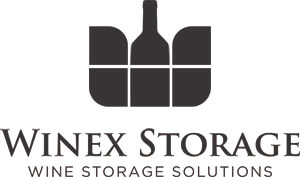By MARISSA HAYDEN
Investing in fine wine is no longer just for the elite. Anyone can invest in wine, however there are a few things you need to be across before you get started.
What is investment-grade wine?
So, maybe you have found a dusty bottle of wine hidden, decades old and with a fancy vintage label, how do you know if you should sell it, hold onto it as an investment or crack it open”? There are a few things that you can look for, such as:
Scarcity: As the supply of a good vintage wine is drunk, any remaining bottles will attract higher and higher prices.
Critical acclaim: Is the wine well regarded by critics, such as Robert Parker Jr, a highly influential critic?
Age-worthiness: Does the wine get better with age? To be investment worthy the wine should have the right mix of acidity, tannins, flavour and alcohol.
Pedigree: A wine from a well-renowned winery, typically from viticultural areas such as the Bordeaux region, Burgundy, Rhone Valley in France and Tuscany in Italy tend to become more valuable over time. In terms of Australian wine, some popular options are Penfolds Grange and Henschke Hill of Grace. Langtons is a good place to do your research on Australian wines with their classification guide helping to set the pace of the market. They also offer online auctions and brokerage services.
How can you invest in wine?
Once you’ve discovered the potential value of your wine, how do you turn it into an investment? Typically, most investment wines are sold at auction, and online auctions have now become popular. The London International Vintners Exchange is one of the major players, boasting access to the largest global pool of wine merchants and up to tens of millions of dollars of wine traded daily. You can also find historical prices on the most traded wines, access to brokerage services, and the ability to buy wines in bond and en primeur, wine still in the barrel.
If it turns out your bottle is no more valuable than grape juice, there are other ways to invest i wine. Investment companies like Vinovest allow you to invest in sought-after wines. They seek out wines directly from wineries, global wine exchanges, and merchants and will authenticate, store, and insure your wine for you. Another option is to invest in wine stocks such as Truett-Hurst, Constellation Brands or Diageo. While there are no wine-specific ETFs you can invest in ETFs that have wine stocks.
What returns can you expect when you invest in wine?
Unfortunately, if you’re going to invest in wine, the first step is resigning yourself to the fact that you won’t get to drink it. Instead, after storing it for a few years, or possibly even decades, you will sell it on, having never cracked the seal. Nevertheless, the payment for your discipline and patience can add up, with the best bottles sometimes attracting a return of around 10-15% per year.
The fine wine market has its own indices that track the prices of the most traded wines. Below you can see the performance, as of 31 August 2021, of each index across different time periods.
Major wine indices
| Index 31/08/2021 (monthly close) | Level | MOM | YTD | 1-yr | 5-yr |
| Liv-ex Fine Wine 50 | 377.87 | 1.02% | 8.89% | 11.77% | 19.04% |
| Liv-ex Fine Wine 100 | 350.93 | 1.26% | 10.01% | 14.66% | 26.77% |
| Liv-ex Bordeaux 500 | 341.99 | 1.50% | 6.62% | 9.22% | 23.57% |
| Liv-ex Fine Wine 1000 | 385.78 | 1.29% | 8.23% | 10.84% | 36.99% |
| Liv-Ex Fine Wine Investables | 372.03 | 1.14% | 6.32% | 12.54% | 22.22% |
Prepared by Canstar. Source: Liv-ex
Things to consider before investing in wine
If you’re buying your fine wines, you will need to consider how you will store it, as temperature or humidity fluctuations can greatly affect the ageing of a bottle, and its eventual sale price. Wine should be kept between 14°C – 18°C and at around 65%-75% humidity. Light and vibrations also need to be kept at a minimum. Many investors opt to have their wine professionally stored, which will be an additional cost, but it ensures it ages well, also provides security against theft or the temptation to drink your investment.
Investing in wine is one way to diversify your portfolio, but it does come with its own set of risks and challenges. However, if you make sure to do your research before you start, there is the potential to make a tidy profit.
Marissa is the Content Producer for the Wealth team at Canstar, and specialises in investment content. Her previous experience has seen her create content for wide range of industries from travel to the legal sector. Follow Marissa on LinkedIn, and Canstar Investor Hub on Facebook.

